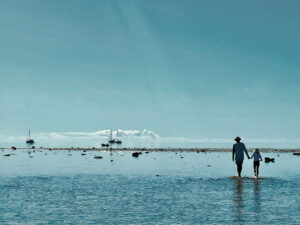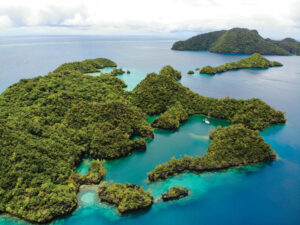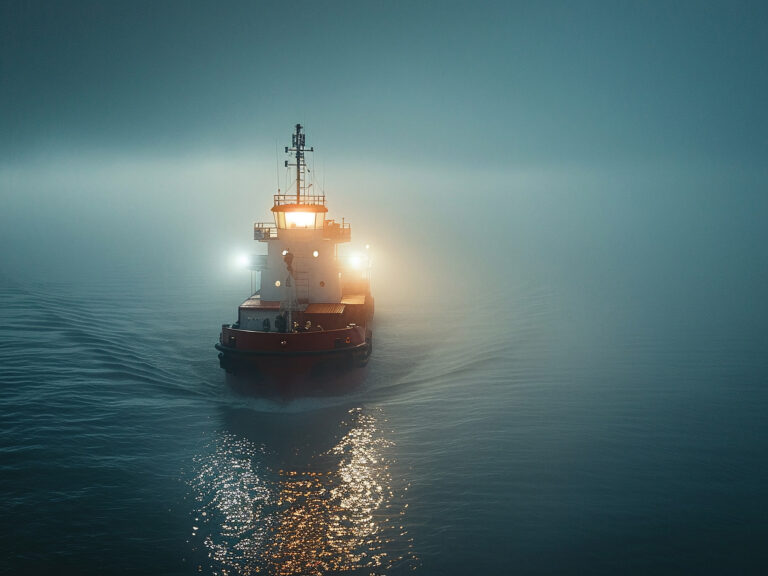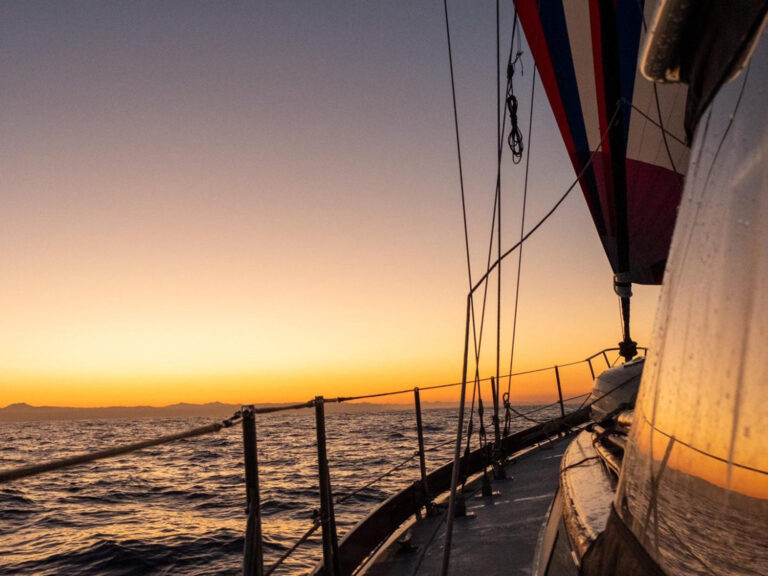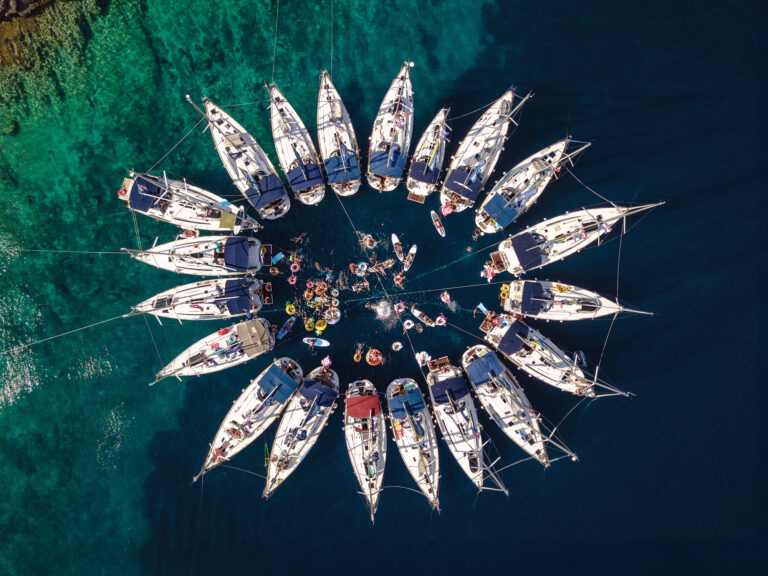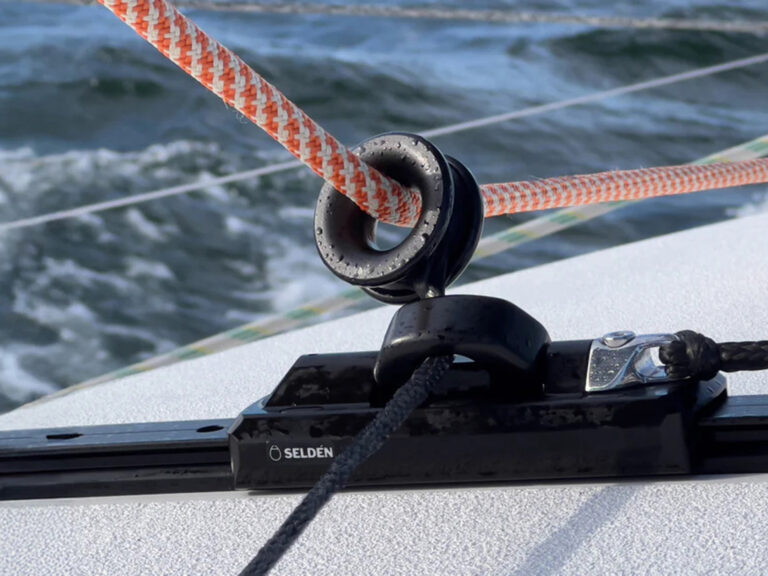From high up on the spine of Virgin Gorda, Columbus’ Fat Virgin, we could see Spanishtown, the destination of our morning taxi trip. Except for the tilt-a-whirl effect of hairpin turns, this was a smooth ride: The road looked newly paved, and we stopped to take pictures at one scenic overlook that granted us sweeping views of South Sound, an emerald hurricane hole.
Soon we’d be hiking up Gorda Peak, but first came the duty of clearing in. It was at customs and immigration that the puffy-clouded musings of my daydreams temporarily went dark. Pay first, play later: We stood inside for nearly two hours while outside, the sun, breeze, and steady waves of Sir Francis Drake Channel beckoned.
The line included both professional crew carrying boat papers and the passports of charter guests as well as cruisers clearing in their own boats. But customs staffers were away on the island of Tortola for a training session the day these folks, as well as our crew, aboard Flyer, a privately owned Swan 57, sailed in. On the officialdom side of the glass were chairs, some filled by workers, others empty.
Minutes ticked away. The air grew close. Some of us shifted our weight. Comments, increasingly audible and prickly, filled the air.
“Hope you brought a book,” cracked one skipper as more sailors filed in. He was a regular, over from St. Thomas in the neighboring U.S. Virgin Islands with his daysail business. “It just gets worse and worse and worse,” he moaned. With no rejoinders, he settled down, and silence resumed.
Worse? If anything, the Caribbean sailing business in the last decade hasn’t merely survived the hurricanes, 9/11, the waiting, and the nerve-jangling bureaucratic processes associated with venturing into foreign territory by sailboat-it’s thrived. But that’s really not the point: For all the grumbling, that fellow, and the rest of us, were doing the right thing, no matter how much of a hassle it was.
What’s really a hassle, though, is the legal trouble you stir up when you don’t obey, much less respect, the entry laws of your destination, whether in the Caribbean or any other foreign port.
It’s certainly true that aspects of dealing with foreign officials anywhere in the world can test the limits of patience. But foreign governments and territories don’t exist solely to serve sailors’ schedules.
Far-ranging cruiser and author Jimmy Cornell makes this useful analogy: “Clearing into another country is like going into somebody’s house. You knock on the door and only enter when you’re told to do so. You wipe your shoes, don’t spit on the carpet, don’t kick the cat, speak nicely to the hosts, and generally behave in a civilized manner. You don’t simply barge in and behave as if you’re in your own home.”
So while we rolled our eyes that day and whimpered a bit, eventually the officials took to their posts, we completed our paperwork, and I got to keep my appointment with Gorda Peak. I followed its lush trail, its hermit crabs, and the butterflies I love to the observation tower and the killer view of North Sound, Saba Rock, and Anegada beyond. Before you set out, if you need a more direct attitude adjustment on the etiquette of clearing in, read A Passion for the Sea: Reflections on Three Circumnavigations, Cornell’s book due out in September.

